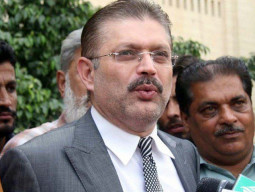
The Executive Board of the IMF approved the loan under the $11.3 billion standby arrangement, signed in November 2008, to help Pakistan avoid default on external payments. The IMF will immediately release the amount, bringing total disbursements to $7.27 billion, said the Fund in a statement from Washington. The IMF gave two waivers for exceeding the limits of budget deficit and borrowing from the State Bank of Pakistan.
The budget deficit target has been increased from 4.9 per cent of the total size of the economy to 5.1 per cent, after getting assurances from Islamabad that it will remain within the new ceiling. The new tranche was approved after Islamabad assured the IMF that it would not only levy value added tax from July 1 but would also take appropriate measures to reduce losses of public sector enterprises and manage losses from wheat procurement. Earlier, the IMF had twice postponed the approval of the tranche.
In a statement, the IMF said that “the waivers were granted… and that adequate remedial actions have been agreed upon to address the remaining slippage.” An official of the Ministry of Finance told The Express Tribune that in order to meet the budget deficit target “the strategy will be to cut development expenditures and withhold provincial releases.” He said that the federal government would try to withhold at least Rs20 billion out of the Rs200 billion provincial development budget.
The government has already slashed the federal development budget by Rs121 billion to Rs300 billion. Under the new arrangement, the finance ministry would not release the funds and keep the federal development expenditure below Rs240 billion, a further cut of Rs60 billion, said the official. IMF’s Deputy Managing Director Murilo Portugal emphasised the need for improving governance. The IMF’s concern over governance shows that it has lost confidence in the government’s economic policies say analysts.
“This is an issue which is not only pointed out by the World Bank but everybody within and outside the country. Therefore, there is a need to improve economic, social and political governance,” said Dr Ashfaq Hasan Khan, former adviser to the finance ministry. The finance ministry official said during talks in Dubai the IMF had expressed concern over administrative and financial mismanagement in public sector enterprises. He said that the government assured the IMF that chief executive officers of eight public sector enterprises would be replaced soon. “In the Memorandum of Economic and Financial Policies, it is written that the chief executive officers’ appointment process is going on,” said the official.
In the words of former finance minister, Shaukat Tarin, the organisations which were inflicting losses worth Rs250 billion per annum included the Pakistan Railways, the Pakistan Electric Power Company (Pepco), the Pakistan International Airlines (PIA), the Pakistan Steel Mills (PSM), the National Highway, Authority (NHA), the Utility Stores Corporation (USC), the Trading Corporation of Pakistan (TCP) and the Pakistan Agricultural Storage and Supplies Corporation (Passco). The Fund also asked for transparent procurement of wheat.
The worst is that it has told the federal government that for the current year it could only procure eight million tons of wheat including existing stocks, a condition which may be politically sensitive for Punjab, the largest wheat producer. The official said that the IMF concern was that wheat was not being procured in a transparent manner and its storage has blocked payments of Rs190 billion. For this fiscal year, the federal and provincial governments want to procure 6.5 million tons of wheat and for that they need Rs160 billion. However, the SBP has refused to give the required amount and instead asked the government to retire the loans obtained for commodity operations.
The official said that the federal government had assured the Fund that existing wheat stocks would be reduced to 1.5 million tons by April. Nonetheless, the government could not reduce the stock and now it has decided to discourage procurement of wheat from the farmers. The IMF deputy managing director stated that the risks posed by quasi-fiscal operations need to be addressed through reforming the power sector, cutting back losses of public enterprises and managing losses from wheat procurement in a transparent manner.
Published in the Express Tribune, May 16th, 2010.


1736923233-0/fizza-(26)1736923233-0-165x106.webp)
1736922216-0/Untitled-design-(83)1736922216-0-165x106.webp)
1736920546-0/fizza-(25)1736920546-0-165x106.webp)












COMMENTS (3)
Comments are moderated and generally will be posted if they are on-topic and not abusive.
For more information, please see our Comments FAQ